Satan, The Imaginary, And Halloween
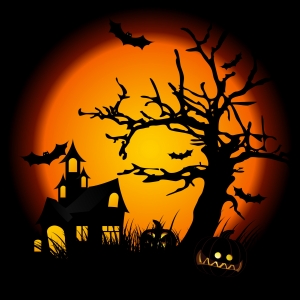 Every year around this time Christians begin a discussion about celebrating Halloween, but perhaps speculative writers, more so. The conversation is justifiable, especially in light of the fact that Halloween has become a highly commercial, and therefore, visible, holiday in the US. As a result, television programs, movies, and certainly commercials have some tie in to the weird, the supernatural.
Every year around this time Christians begin a discussion about celebrating Halloween, but perhaps speculative writers, more so. The conversation is justifiable, especially in light of the fact that Halloween has become a highly commercial, and therefore, visible, holiday in the US. As a result, television programs, movies, and certainly commercials have some tie in to the weird, the supernatural.
For Christians, there seems to be a great divide when it comes to celebrating Halloween. Are we taking up the cause of the enemy if we carve a pumpkin and hand out candy to Trick-or-Treaters? Should we offer alternatives — a harvest festival instead of a haunted mansion — for our church activities? Should we seize the moment and build good will in our community by joining in wholeheartedly, or should we refuse to recognized the holiday, turn off the porch lights, and decline to answer the door when masquerading children arrive?
Satan.
As I see it, there are two critical issues that dictate our response to Halloween. The first is our attitude toward Satan and demons. Is he (and are they) real? How big a threat is he? How are we to respond/react to him?
Scripture gives clear answers to these questions. Satan is a real being, one referred to as the father of lies (see John 8:44) and as a being masquerading as an angel of light (see 2 Cor. 11:14).
In response to something Spec Faith co-contributor Stephen Burnett said in his article “Shooting at Halloween pumpkins”, I laid out an account of Old Testament references to Satan and his forces. For those who missed it, here, in part, is that comment:
Satan was abundantly active, starting in a certain garden where he brought his devilish behavior before Man and his wife. Another vivid depiction of Satan’s activity is detailed in the book of Job.
In Egypt, Moses faced Pharaoh’s conjurers. Certainly their source of power was not God, yet they duplicated a number of Moses’s miracles.
On the way to the Promised land, God instructed the people “They shall no longer sacrifice their sacrifices to the goat demons with which they play the harlot” (Lev. 17:7 a). Forty years later in Moses’s farewell speech, he described how the parents of the current generation had behaved:
They sacrificed to demons who were not God,
To gods whom they have not known,
New gods who came lately,
Whom your fathers did not dread. (Deut. 32:17)I think it’s clear that the gods Israel continued to worship — and the ones worshiped by the neighboring people — were demons. Hence the admonishing to excise sorcery from their midst.
Unfortunately they didn’t obey but continued to involve themselves in demon worship:
But they mingled with the nations
And learned their practices,
And served their idols,
Which became a snare to them.
They even sacrificed their sons and their daughters to the demons (Ps. 106:35-37)Then there was this verse in I Chronicles: “Then Satan stood up against Israel and moved David to number Israel.”
I could give you verses from Daniel too, showing that Satan was active in standing against his prayers, and that he was in fact “the prince” of, or had cohorts who were, known locations. Isaiah, too, and Zechariah had prophecies involving Satan.
The point is, Satan was very active in the Old Testament.
Scripture is also clear that Satan is a threat. He is described as an adversary and as a lion seeking to devour (see 1 Peter 5:8). He’s the accuser of the brethren (Rev. 12:10), the tempter (Mark 1:13), the one who snatches away the Word of God (Mark 4:15), the one who can bind (Luke 13:16) and destroy (1 Cor. 5:5) and torment the flesh (2 Cor. 12:7), who comes against us with schemes 2 Cor. 2:11), who demands to sift some (Luke 22:31) and possess others (John 13:27), who hinders believers in their ministry (1 Thess. 2:18).
Satan is real and he is a threat, but he is not greater than God. In fact his doom is sure. Scripture instructs us to be on the alert against him, to stand against him, to resist him, but Satan is a defeated foe (Col 2:15 and Rom. 16:20). We are never told to fear him.
The Imaginary.
The second critical issue when it comes to deciding how we are to deal with Halloween is our understanding of the imaginary. Dragons, vampires, cyclops, werewolves, zombies, goblins, orcs, trolls, and such are imaginary creatures from the pages of literature. Witches and wizards that wave magic wands and/or fly around on brooms are imaginary. Ghosts that float about like bedsheets and are friendly or who pop in and out of sight at will or move things about with a word are imaginary.
Are Christians ever instructed in Scripture to stand against the imaginary?
On the other hand, most of us recognize that these various creatures are or have been representative of evil. The question then becomes, are we handling evil correctly by giving attention to the things that have been used to represent it?
Along that line of thinking, I believe it’s fair to ask if we should avoid representations of snakes, because Satan entered one, lions because Scripture said he is one, and angels because he appears as one.
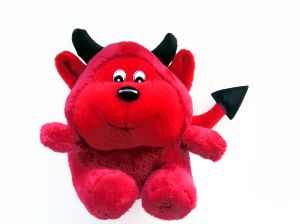 The greater question, it seems to me is whether or not dressing up in costumes of creatures that have an association with evil might trivialized evil, much the way the “red devil with horns and a pitch fork” image of Satan trivialized him so that fewer and fewer people believe he is a real being — not a good thing at all if we are to stand against him.
The greater question, it seems to me is whether or not dressing up in costumes of creatures that have an association with evil might trivialized evil, much the way the “red devil with horns and a pitch fork” image of Satan trivialized him so that fewer and fewer people believe he is a real being — not a good thing at all if we are to stand against him.
Halloween.
These two issues — what we believe about Satan and what we believe about the imaginary — collide in this one holiday. But there’s another element that must enter into the discussion because ultimately, what we do on Halloween is done in front of the watching world. We need to ask, what does our culture believe about Halloween?
As other comments to Stephen’s post reveal, some studying the holiday see its historical underpinnings — either pagan Celtic practices or early Church traditions. But what do ordinary people today see? Are our neighbors celebrating evil? Or are they having fun dressing up as something spooky? Are they going to haunted houses because they want to invoke the dead or because they want a shot of roller-coaster-ride-like adrenaline?
While we can’t deny that a fringe element — perhaps even a growing fringe element — see Halloween as a celebration of evil, I don’t think I’m wrong in saying that the majority of people in the US view it as nothing more than a reason to party. The activities are consistent with the day but have little or no meaning, much the way most people celebrate Christmas.
How we as Christians celebrate Halloween, then, hinges on these three factors — our view of Satan, our understanding of the imaginary, and what we want to say to our culture.
Is there one right way of doing Halloween? I don’t believe so. I do believe we should avoid pointing the finger at other Christians and saying that they’re doing it wrong. Paul speaks to this issue in Colossians 2: “Therefore no one is to act as your judge in regard to food or drink or in respect to a festival or a new moon or a Sabbath Day” (v. 16). Those who choose to celebrate are just as clearly not to point the finger at those who choose not to celebrate.
The only way we can insure that Satan has his day is by our disunity, our unloving attitude, our angry arguments over whether or not we celebrate Halloween.



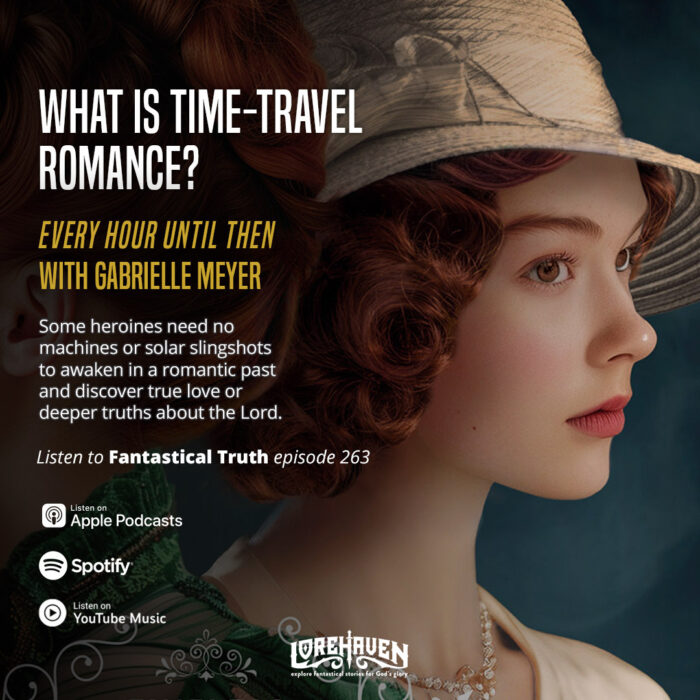















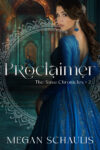
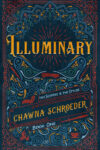

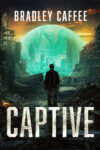



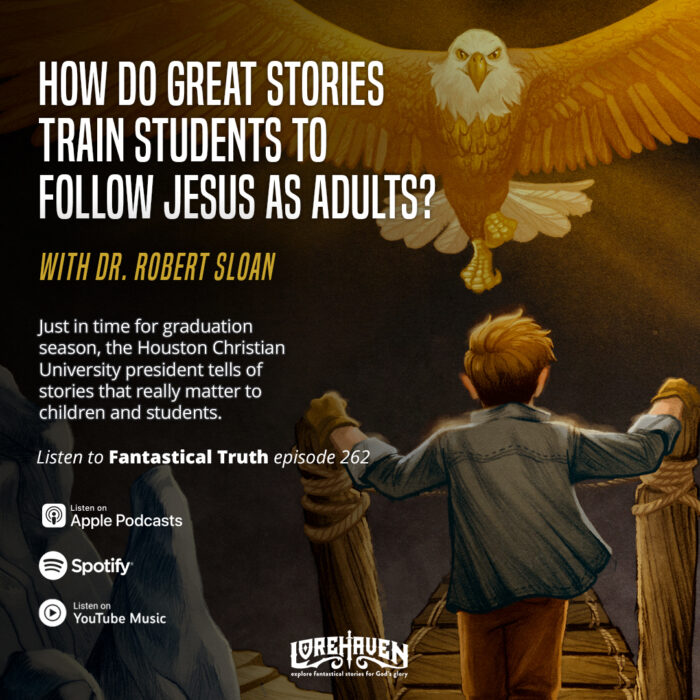


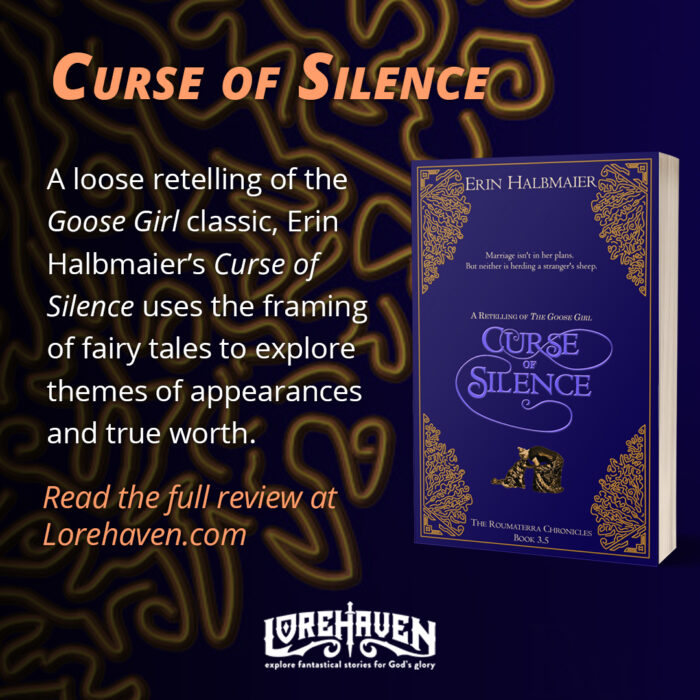
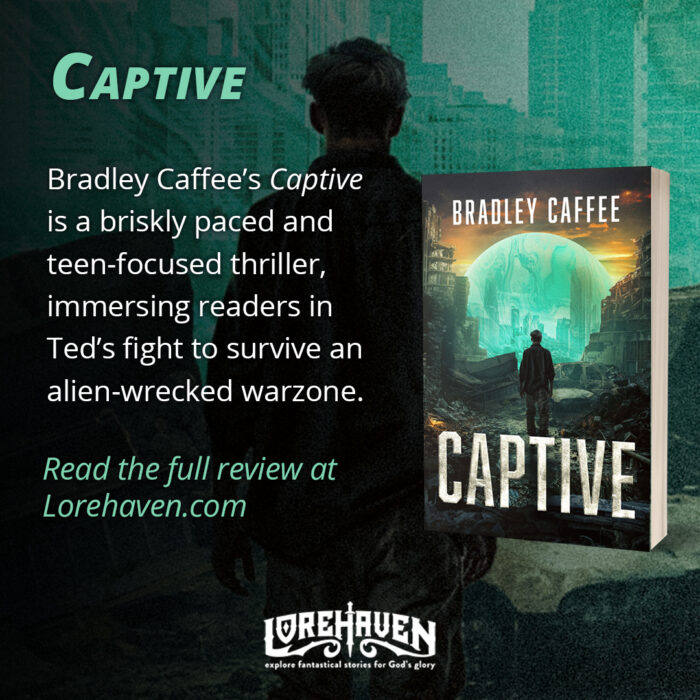







Good post but a couple of corrections: vampires and shapeshifters aren’t imaginary. Witches and wizards on brooms aren’t imaginary. Zombies are not imaginary (although they are generally people who were poisoned with certain herbs.) Ghosts may or may not be imaginary but demons certainly have pretended to haunt houses. Not going to explain how I know these beings aren’t imaginary…but take it from someone who has seen some very horrible things in her life…and from someone who comes from a culture which has seen many things: just because you haven’t seen these things, doesn’t mean they are imaginary. There are more things in heaven and earth that are dreamt of in the American Evangelical’s philosophy or imagination.
Hi, Carole, I appreciate you taking the time to weigh in on this post.
I should have been more careful with my list of creatures. I do realize that there are people who practice witchcraft and who take the role of vampires. My point was that the tropes assigned to these beings by literature are imaginary.
While there may be people who sit on brooms, they don’t make them fly. While there may be people who drink blood, they are not immortal. Scripture says there is a time once to die, and then the judgment (Heb. 9:27), so I don’t believe there are undead as stories depict zombies.
I was more careful with ghosts. If there are such things, they don’t manifest as I described them — like Casper the friendly ghost, or the witch on Bewithched or those in the old, old show Topper. Those are imaginary and don’t match anything the Bible talks about — Samuel called up by the witch of Endor, Moses and Elijah meeting with Jesus at His transfiguration, or even the disciples’ erroneous idea that Jesus walking on the water, or standing before them in His resurrected body, was a ghost.
I don’t know from any kind of personal experience, but I do know from Scripture that there are powers, rulers, authorities, thrones, dominions — in other words, things in the Spiritual realm Colossians puts into the category of “invisible.” That those might become visible on occasion is born out by Scripture, at least when it comes to angels. Why should it be different for demons?
It’s a mistake for us to dismiss those forces lightly. But it’s a mistake to confine them to the imaginative images of fiction writers, too, don’t you think?
Becky
Amen to everything above, Becky.
Carole, I’d also be curious what you think, today, counts as a “shapeshifter.” Because Scripture does not talk about demons imitating things — only the Devil making himself attractive, or demons, say, going into pigs — we’d have to rely not on Scripture to make this claim, but the testimony of pagans or others who are speaking outside of Scripture.
I can agree with some of your argument about imaginary creatures, but I totally disagree with you inclusion of witches in that category. Witches, sorcerers and witchcraft are mentioned and condemned repeatedly in Scripture, including all the things we associate with witches.
2 Chronicles 33:6 he caused his children to pass through the fire in the valley of the son of Hinnom, also he observed times and used enchantments and used witchcraft, and dealt with familiar spirit and with wizard; he wrong much evil in the sight of the Lord to provoke Him to anger. Because of this sinful king, God judged Israel.
In at least 8 other Scripture references, God speaks of His intolerance of witchcraft – even to the point of saying we are not to suffer a witch to live (Exodus 22:18) and lists witchcraft beside idolatry, strife, sedition, fornication, adultery, etc in Galatians 5:19-21
Hi, Shawn, thanks for your comment.
Of course you’re right about the Scriptural injunction against witchcraft, sorcery, and divination. No doubt about it. However, this is not the same as the fictional depiction of witches with wands, flying around on brooms. There is nothing in Scripture that would give a picture of a witch that fits that description. Such a creature, while sharing the name “witch” is not the same as the woman King Saul met to conjure up the prophet Samuel from the dead.
This is a perfect example of our need to think about the imaginary. We must not confuse those with reality. There are real rabbits, but none that run around saying they’re late for a very important date a la the rabbit in Alice In Wonderland. We don’t confuse the two, however. We don’t expect real rabbits to talk, nor do we censure Carroll’s fantasy because the rabbit had unreal characteristics. We recognize the two as different.
In the same way, I believe it’s important that we do the same with witches. We dilute evil to do otherwise. Thinking of a witch as an ugly woman wearing a pointy black hat hovering over a cauldron is an image from literature, not Scripture. It’s no different than imagining Satan with a tail and horns. These inventions of the imagination bear little to no resemblance to actual witches and the very real Satan.
We must get this right if we are to effectively resist the devil.
Becky
But that’s not always how witches are portrayed as ugly hags on brooms. You certainly wouldn’t say that about some characters in Harry Potter for example. But even without the stereo type, they dabble in enchantments, familiars and spirits, which is why I quoted that Scripture, to show God mentions those things associated with ‘witches’ whether real or imaginary. And remember, all imagination starts with some form of reality.
The same can be said about the portrayals of Satan in various form. But does watering down witches to a palatable form for kids make them any less real? No. Just like watering down Satan to an silly image of a red being with horns and a tail does not make him less real or harmful. If we start compromising everything in Scripture based upon caricatures where will the compromise end? Just food for thought.
Becky,
Yes, we should avoid judging another Man’s servant, a servant who is seeking to do his Master’s will! However, we should be able to express Biblical convictions, and sometimes expressing them offends others. Yes, we should strive for love, chiefly.
I don’t think that Paul had such a day in mind when he wrote to the Colossians, but rather the days that were Jewish feasts or sabbaths. We can extend this to celebrations like Christmas celebrations, but not I feel to Halloween.
You wrote: “The only way we can insure that Satan has his day is by our disunity, our unloving attitude, our angry arguments over whether or not we celebrate Halloween.” I don’t think that is the whole truth. Better perhaps to say, “One way we can…”
God bless you, Becky!
Maria
Marie, I’m sure Paul didn’t have Halloween in mind. 😆 But he goes on to say some pointed things about practice imposed on one person by another:
The key, I think is that these are commandments and teachings of men, not something from God.
I’ll use smoking as an example. I don’t smoke because I don’t think it’s wise. I also think it’s consistent with principles I find in the Bible. But I don’t believe God told us not to smoke. It’s not in Scripture. The same is true about drinking. Yes, Scripture speaks against drunkenness, but not against drinking. But I choose not to drink. I think it’s wiser, healthier, and the best way I can be sure not to disobey Scripture’s clear command against drunkenness. But If I taught no drinking as a command of Scripture, I’d be wrong.
My point is, I think it’s absolutely fine if a Christian determines not to celebrate Halloween at all, but I don’t think that’s something that one Christian should impose on another.
I also don’t think that those who celebrate it should look down on those who don’t and criticize them as legalists. Legalism isn’t this — holding to our convictions that might be stricter than someone else’s. Legalism is this — trying to make other people follow the commandments and teachings of men as if they are the commandments and teachings of God. There’s a huge difference, and I think some people forget that.
Becky
My take on it is very simple: it’s not my holiday and I don’t have to celebrate it! 🙂
This makes me happy because I want to save my energy and fun for the clearly Christian holidays that I do want to celebrate.
…And I’ve tried all three versions of celebrating Hallowe’en or not celebrating–and I think I’m going to stick with this one.
I think–if I had never lived in Colorado Springs, if we had lived in more rural areas or stayed in the Bible Belt in the South I might see this issue differently. But there are people who do sacrifice cats in Co Springs on Hallowe’en, and I know of other worse things that have also been done.
I really do feel that I have to take it more seriously as a result.
Shawn, I appreciate your willingness to dialogue on this issue.
Just to be clear, I specifically identified the witches flying on brooms as the imaginary, not the ones the Bible talks about. I don’t in any way justify or hedge on the prohibition Scripture gives against these activities. I like the ESV here in particular because it uses terminology I’m more familiar with (pun not intended): “he … used fortune-telling and omens and sorcery, and dealt with mediums and with necromancers.”
This is not the wand-waving, turn someone into a frog or blast them with laser fire kind of “magic” that occurs in stories such as Harry Potter. (Ironically, the only teacher that received open mocking from the students was the one who supposedly taught fortune-telling — they thought she invented it all).
But all that aside, the point I made in the post (one of them, anyway) is this:
To put it plainly, are we to stand against Halloween or against Satan? The two are not the same. If we misidentify Satan we play into his hands. If we spend our time and energy fighting a symbol, not the actual enemy, we’re depleting our resources. And truthfully, if we’re going to go after symbols, then we need to go after all of them, not just the dark ones that somehow play to our preconceived idea of Satan.
Shawn, you also said
Perhaps you missed this paragraph in my post:
Clearly I think turning creatures traditionally associated with evil into cozy and kind (or even sexy and buff, in the case of vampires) has the potential for being problematic. Adults need to think this through with Bible in hand and parents need to have serious spiritual conversations with their kids.
But I see no reason why we can’t all — kid and adult alike — come to an understanding that Santa is pretend and Jesus is real, the witch in Narnia is pretend and the witch of Endor is real, the dragon in The Hobbit is pretend, the serpent in the Garden of Eden is real (and so is the dragon in Revelation). This is important to be able to differentiate these things, and in so doing, it may affect the choices we make about Halloween.
Becky
Krysti, it’s not my holiday either, and any second now, I’ll close my door and keep the light off so that any T &T’ers pass me by.
I live in a big city, too, but heard many more rumors about the stuff you refer to when I lived in one of more moderate size. Now the big concern is razor blades, spiked candy, child molesters, and the like, honestly, few people still brave the door to door activity any more. Lots of churches have risen to the occasion and have harvest festivals. One even has a scare maze, and it’s all connected to community outreach. I’ve never gotten involved in those, but I can see the thinking behind it. If I had age-appropriate kids, that’s probably the route I would take, given where I live now.
Becky
Are Christians ever instructed in Scripture to stand against the imaginary?
The greater question, it seems to me is whether or not dressing up in costumes of creatures that have an association with evil might trivialized evil…
Interesting. The argument that we can use to explain why those same characters (vampires, werewolves, etc.) are acceptable in speculative fiction, namely that such beings allow us to explore themes that are inherently impossible for humans to explore, doesn’t really transfer over to Halloween costumes. Then again, I doubt that many children are trying to make a statement with their Halloween costumes. I think we often try to assume or assign motives where there are none. My daughter’s pre-kindergarten class saw a slew of costumes: mini-vampires, Buzz Lightyear, Captain America, Strawberry Shortcake, a porcupine. None of these costumes was an endorsement of a life dedicated to those things, nor were they attempts to make those characters trivial.
The idea that we can trivialize the devil, or that such is a bad thing, may stem from a supply-and-demand mindset of our culture. Half a dozen devils running around does nothing to the actual devil, or our concept of him. During the Reformation, there were plenty of people running around in devil-costumes, with the specific intention of trivializing and mocking the devil.
Jeremy, the point is precisely that no one cares to mock the devil any more because many don’t think he’s real. The trivializing isn’t intentional. It’s a product of us not thinking evil symbols are evil. And I’m not saying it is an automatic.
My first Halloween costume was a sheet with holes — the pretend version of a ghost in my day. I wasn’t making a statement and I wasn’t thinking to trivialize anything. I was looking for a costume we could afford so I could go trick-or-treating. Did it have lasting effects on me regarding the supernatural? Not in the least.
My point is, in my case, what my parents taught and what I learned in church far outweighed any messages from the culture, so I know first hand that Halloween activities don’t have to serve as the authoritative source for what an individual child believes. Rather, I suspect it is our culture at large that has trivialized evil. That’s the road I think we’re headed down, one mentioned in the prophets, from Isaiah to Malachi.
You bring up an interesting question. Now that we’re making dragons and vampires and witches and wizards good, or with the potential of good, are we losing those symbols of evil that allow us to explore evil?
Becky
Huh. I thought I was agreeing with you.
I don’t know where I stand on the Halloween issue, it’s not particularly big in Australia. I don’t celebrate but nor do I shy away from it. I more or less just ignore it.
To the majority of people commenting – if you had even a cursory look over the Speculative Faith blog and had read Rebecca’s posts, I’d think you’d find that she is a biblically-grounded Christian and that your questions/concerns have already been answered. It helps to read an article all the way through.
Well, not sure how the lead into the comment box got changed (it now reads “Your thoughts about Christian”), but these are not my thoughts about you, Christian, but about what you said. 😉 It means the world that you find my posts biblically grounded. That’s what I wish to accomplish more than anything else, so you just gave me my own little World Series ring. Thank you!
Becky
From Christian:
(Applause.) Yep. Apparently, though, Christians need to take a harder look at some of the myths and misconceptions — going in all directions — we’ve accepted about the Devil and what he can and can’t do, and what his (Biblically stated) defeat means to us.
Shawn, hope you don’t mind if I join in here, to add or reinforce some thoughts.
I think at the root of some Christians’ beliefs or fears about witches, the occult, etc., is a flawed starting point. Yes, there are people who call themselves “witches” and try to use “spells,” circumstances, etc., to manipulate spirits, and/or their lives. Yes, the occult is real; as Becky has shown here, the Devil and his demons are real and dangerous.
But should we start our discernment or discussions with the Bad Guys, trying to determine their dossier or roster of powers? If so, on what do we base our knowledge of the bad guys? What they claim they can do? Stories about spiritual warfare?
Anything we believe about what the Devil does, or can do, should first be based on what Scripture says about him — not tradition, books, or methods.
If God wanted us to know, or fight, anything more about the Devil besides that which He already told us in His Word, He would have put that in there. I’m perplexed by how (very well-meaning) Christians seem to want to fill in the gaps about what Satan does.
Another factor seems to be the “stand in the gap” mindset. In conversations about personal discernment and spiritual warfare, for example, folks will immediately switch to talking about children or purported “weaker brothers.” That’s a related issue. But first let’s discuss personal growth and discernment — it doesn’t help to skip gaily on past that crucial aspect of Devilish discussion applied to ourselves as if we’re only talking about this on behalf of Someone Else. But God doesn’t say “resist the devil” (in the NT) first on behalf of Someone Else, such as a child. He first applies it to us personally. Other passages speak more directly about parents’ needs to train up their children, guard them, etc. So let’s not skip to “intercessory” discernment, without doing this first.
Let me try to add to what Becky has said about confusing imaginary “witches” or “ghosts” with their real-world parallels that we should avoid.
No, it doesn’t.
But if we followed the “be as fearful of totally imaginary evil creatures as we are of true evil” belief, we’d need not only to roll our eyes at such attempts to portray the Devil, but actually fear them. We would fear images of men in red suits. Thus the Devil himself, and/or our own flesh, has “gained” power that he otherwise would not have — because we have given it to him ourselves, through wrong-minded additions to Scripture!
Whereas a strong Christian would be watchful against and resist the actual Devil, this kind of notion adds frivolous and trivial fears to real guardianship. At worst, these will actually replace actual watchfulness against sin and the Devil, and in some cases all break down make the whole idea of discernment or the Devil’s dangers seem ridiculous. I prefer not to mix superstition with Scripture, lest we add made-up notions to God’s Word and detract from the actual villains: our sin, and the Devil.
Om nom nom. Thanks for the food. 😀
But it seems that neglecting the Bible’s actual villains — first, our own sin; secondly, the Devil and evil world systems — is the first compromise. Ignoring the Devil’s actual existence or dangers is one risk. Exaggerating them is another. Both are compromises.
Moreover, both favor the world’s henchmen (evil as they are!) and ignore the Boss villain: our own sin, to which God’s Law and Christ’s sacrificial-death fulfillment of it are both addressed. The Devil exploits our sin, not vice-versa. Christ defeated both villains, though we still struggle with both. Yet the Bible tells us much more about sin’s remnant pull on our hearts than it does about Satan’s. We should believe, and act, accordingly.
Finally, pardon a moment of self-plagiarism, which happens to repeat what Becky has said above. This is from a column about Harry Potter, but has broader applications.
I do not participate in Halloween. And for me it’s not a faith issue. It’s a moral issue. Seriously? This one night a year it is okay to:
-Parade our G to PG kids through an R rated world (these children should not yet have had exposure to the movie and story creatures they are dressing up as, and see all around them on this “holiday”. We have the rating system for good reasons).
-Pretend the things we’ve told them not to fear – because they are not real- are not only real but scary.
-Encourage them to not only accept candy from strangers, but to walk right up to strangers doors.
-The whole “trick or treat” thing- If you don’t get what you want it’s okay to get revenge?
– CANDY, CANDY, CANDY! – I’m sorry, but no one needs this much candy, and especially not little kids. But it is a strong reinforcement to all of these behaviors we try to discourage the other 364 days of the year.
I could say more, but I think this is enough.
Patrick, I don’t think “G and PG-rated kids” even exist but there’s discernment in not letting them experience more than is beneficial and more than they can handle (the ratings system isn’t picture-perfect because it doesn’t take into account the context of a piece, nor was it designed with Christians in mind). As for the costumes children wear, many children don’t even dress up as creepy creatures and characters. Still, there’s something to be said for any parent/guardian who doesn’t guard their child(ren) and let’s them watch anything and everything.
You seem to be talking about exceptionally young/sensitive children but some children are older and more mature. There’s definitely wisdom in not heightening the fear in children but that’s everyone’s responsibility to gauge whether a child is up to it or not.
As for accepting candy from strangers, that’s a big no-no normally but if I’m not mistaken, don’t children have a parent or older sibling to watch over them as they go from door-to-door? That would help to prevent any true horror stories from happening.
I’m with you on the concept of Trick or Treating. Some children are already spoilt-rotten and think they’re entitled to everything. This practice helps to reinforce their beliefs. Also, some children can get pretty nasty with their Tricks. But all in all, I think this isn’t hugely commonplace but it’s something for parents/guardians to be wary of and to discuss with their child(ren).
Too much candy isn’t good for anyone, least of all for parents/guardians. 😛
I dunno. From the smallest (in a stroller) to the oldest (maybe 15 or 16) trick or treater we’ve had, they were all very polite and said thank you and wanted to pet our puppy.
My dad’s motto is “everything’s a teaching moment.” My tire goes flat on the way home, he stops to teach my friend and I how to swap the tire and what to do in an emergency. A parent takes their kid trick or treating (which we never did), it’s the perfect opportunity to teach basic manners – both in treating the owner with politeness and gratitude (and not being greedy) and in how to gather on the porch without running each other over (I heard several “I’m sorry; I didn’t mean to bump yous” tonight).
And as far as the quantity of the candy consumed goes, that’s a lesson in discipline and moderation. Of course, if the kid eats the entire bag all at once it’s bad. But even if he does, it’s going to take more than one night of that much candy to make an unhealthy kid.
Moreover, I’m not sure how much it’s teaching kids to run up to strangers on their own accord, because the kid (at least, the ones in our neighborhood) are going in large groups under supervision and know half the neighborhood anyway.
I’m rambling…
We open our garage on halloween, light our lanterns, and I offer to the adults fresh coffee and home baked cookies. The kids get candy. We play Christian music for the most part and it is our time to interact with a neighborhood that is otherwise closed off the rest of the year thanks in part to technology and garages. It’s a time to fellowship with believer and unbeliever alike; to shine a light.
Isn’t it possible that you’re being too harsh on Halloween, and instead of taking advantage of it for light, choose to remain closed off and dark, showing your displeasure to a watching world?
Just food for thought. Might want to rethink to reach an unsaved world.
Every Halloween I am scared because of the ghost stories every where. But the lighter part of it is when the you see those little kids having fun for their trick or treat.
Whereas a strong Christian would be watchful against and resist the actual Devil, this kind of notion adds frivolous and trivial fears to real guardianship. At worst, these will actually replace actual watchfulness against sin and the Devil, and in some cases all break down make the whole idea of discernment or the Devil’s dangers seem ridiculous. I prefer not to mix superstition with Scripture, lest we add made-up notions to God’s Word and detract from the actual villains: our sin, and the Devil.
Thanks, Stephen. That is my whole point. If we make a distinction by using trivialities and folklore for kids, how will they learn to discern what is a real threat? They won’t because mixed signals would have been sent. Which is the real Satan and which are the real witches? Kids can’t make those subtle distinctions. Should we go screaming into the night over silly folklore and myths? No, giving those places of prominence is foolish. The strong Christian and parents – must provide a balance.
I don’t know how many on this forum have had actually involvement with the occult – I have. I grew up in an occult home. Thus I tell people to remember Satan is crafty and just has he can appear as an angel of light, he uses masks of folklore, myth and legend formed in the imaginations of men to hid his real purpose. Don’t take that warning to mean I’m saying to look behind every rock for a demon, I’m not. Rather a reminder that seemingly innocent practices on the surface, may not be innocent. This is especially true where Halloween is concerned when one can see the pagan origins steeped in real fear, death, omens and evil committed on that day. For centuries, people cowered in fear – not celebration, and with good reason – there were people to fear on that night. There still are, only they now have the cloak of social anonymity to hide behind.
Shawn, thanks for the continuing discussion.
Along with you, I oppose all the death-and-gore-obsessed traditions of Halloween. I don’t want to have any part of them myself, and if/when God blesses us with children, my wife and I will grow them gradually into realizing these horrors are out there, and not throw them into this all at once.
Yet this leads me back to another point that I said above: that Christians should first determine how Scripture says we should discern for ourselves, and only then talk about Children or any otherwise Weaker Brother who needs protection.
Otherwise we’ve skipped a discernment step. We set ourselves up only as Brave Protectors of the Innocent (which we should be, in a way), without first applying Biblical discernment to ourselves and to adults who are mature in their faith and understand the Devil’s reality and powers, but also his limitations.
Here are a couple of questions for you, and anyone else:
Some of this, too, springs from the discussion in the Thursday column to which Becky alluded. I might also “plug” the Harry Potter and the Issues Beyond Fiction series.
When we get into issues about even knowing about or being exposed to real works of Satan, Scripture is not as simplistic as we might think in its approach. Earlier Becky mentioned Daniel in the OT — the same Daniel who studied actual pagan literature, witchcraft manuals (much worse than Harry Potter) and did so with God’s help, while staying holy. Similarly, the apostle Paul (for public use in an in-the-world and not in-the-local-church context) was familiar with pagan Greek poetry. Therefore any discussion about discernment should include not only “protect the children,” but these truths also.
Stephen, we’re pretty much saying the same thing. I just believe, even in fiction, of making clear distinctions between good and evil and not blurring the lines by using cultural acceptable stereotypes that could minimize the seriousness of the issues.
In all my books, personal accountability, sins, choice, consequences etc. are the focal point. The supernatural elements are secondary. They are a powerful force to be reckoned with, but in proper context. It’s when those ‘supernatural’ elements are elevated, enhanced and made to aspire to that it is in danger of crossing the line.
But this is an issue that can continue, so I think we’ll leave Becky’s thread for another day and topic. 🙂
AMEN!!! Loved that article.
Thanks, Nikole, I appreciate the feedback.
I didn’t mean to come across as argumentative. Your comment generated thoughts from my own experience, but I didn’t mean to stay in rant mode. 🙄 Really am sorry.
I appreciate you taking the time to deepen the topic. That’s what makes Spec Faith, I think. We have a great community of people who think about these subjects and are willing to interact with one another.
Becky